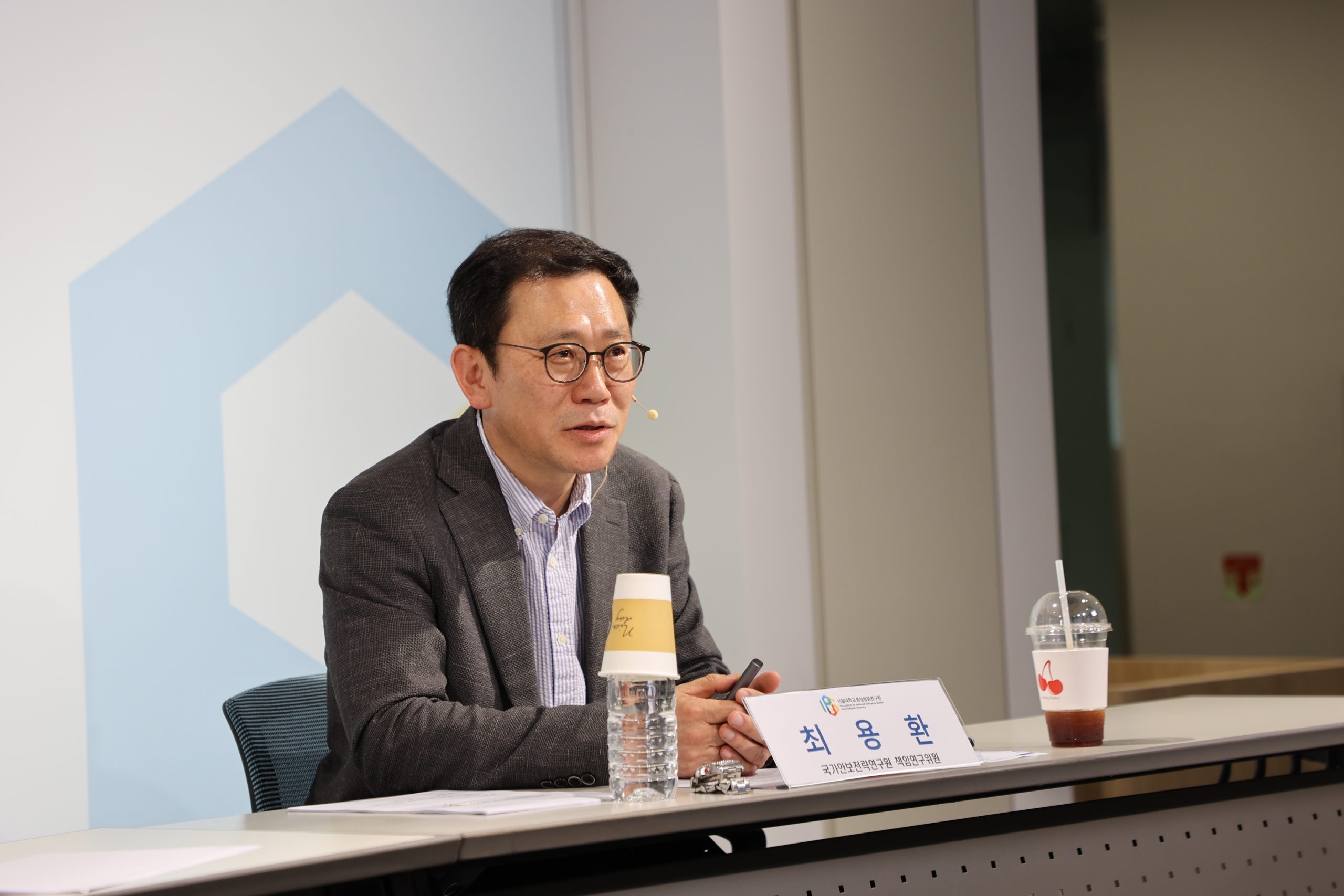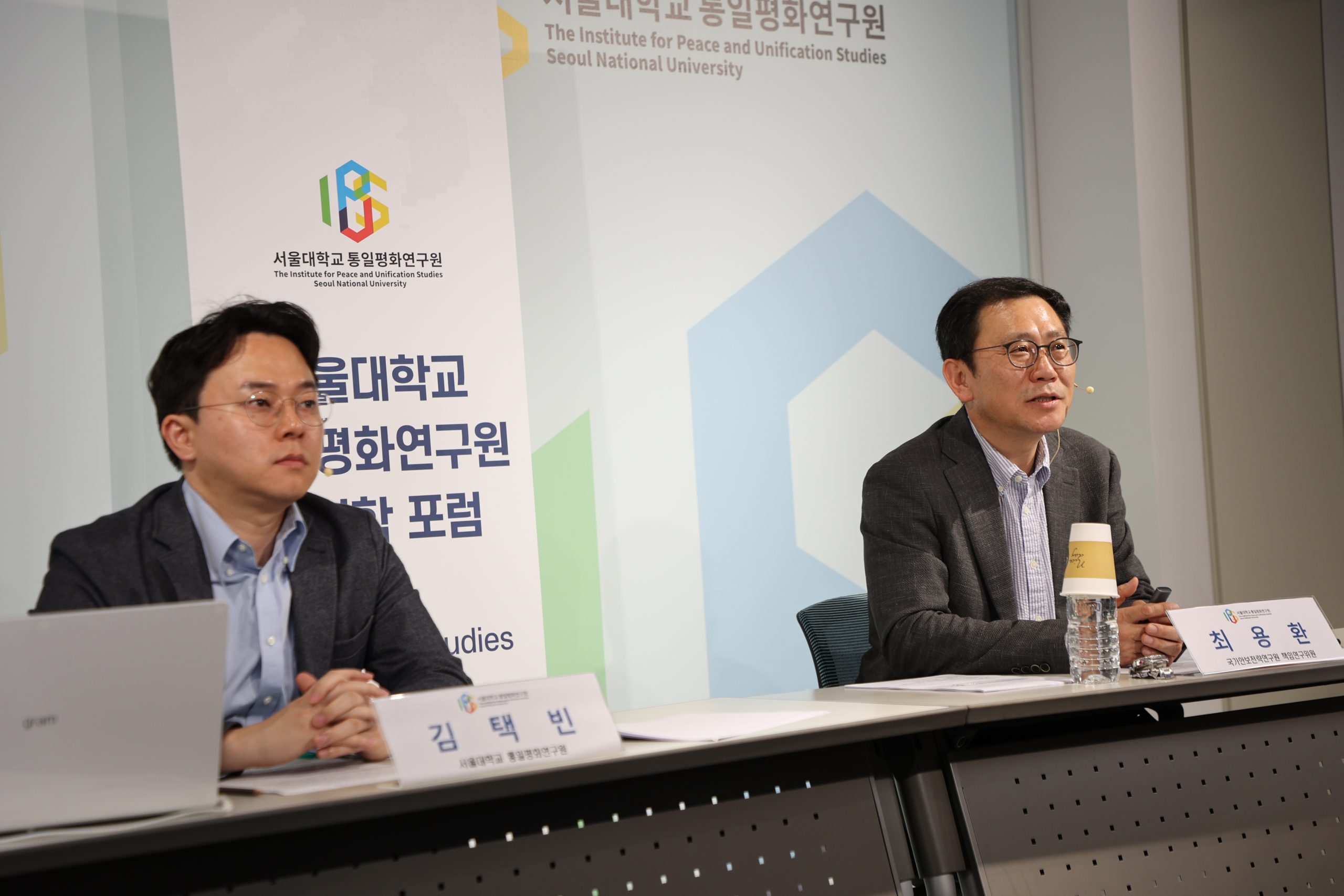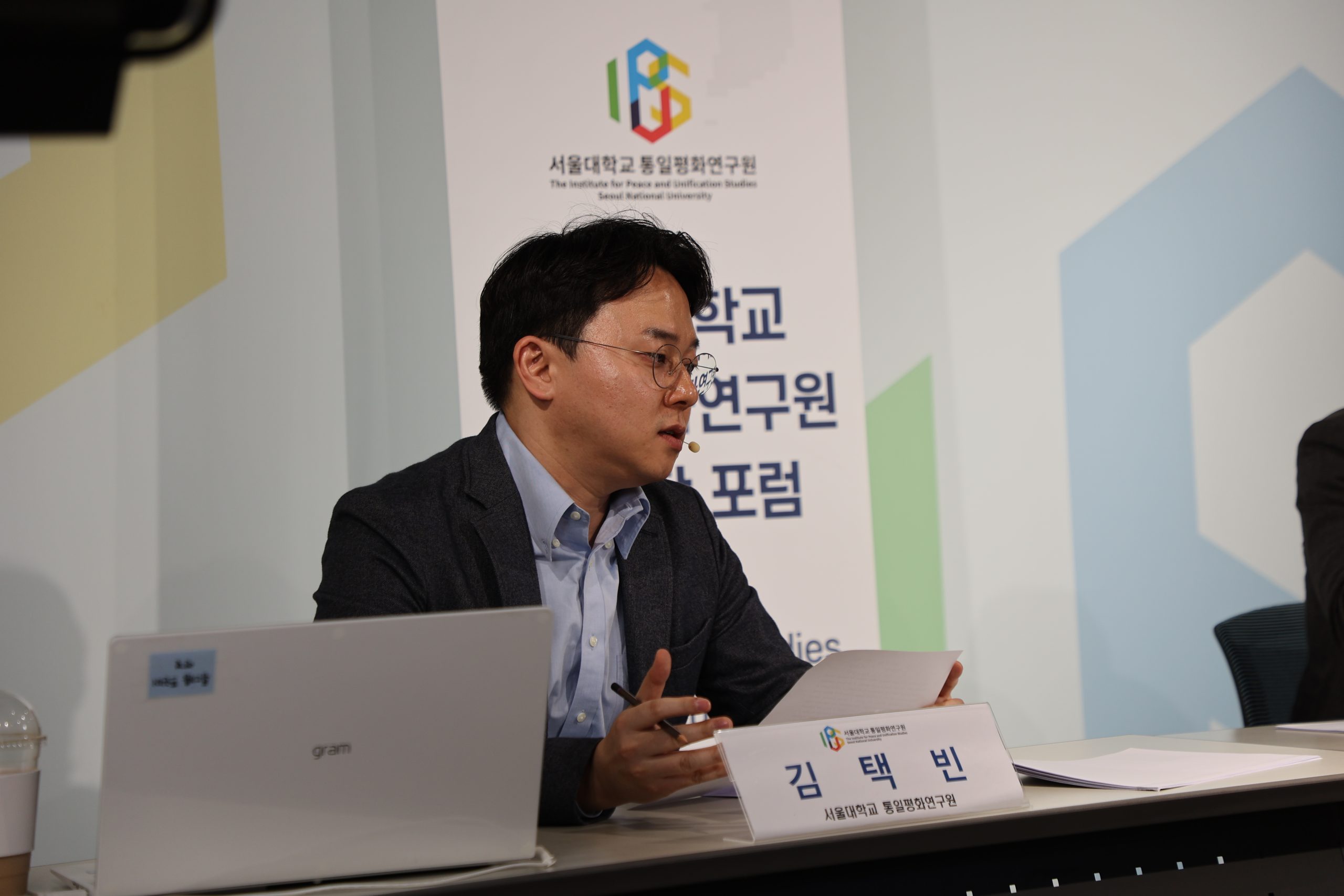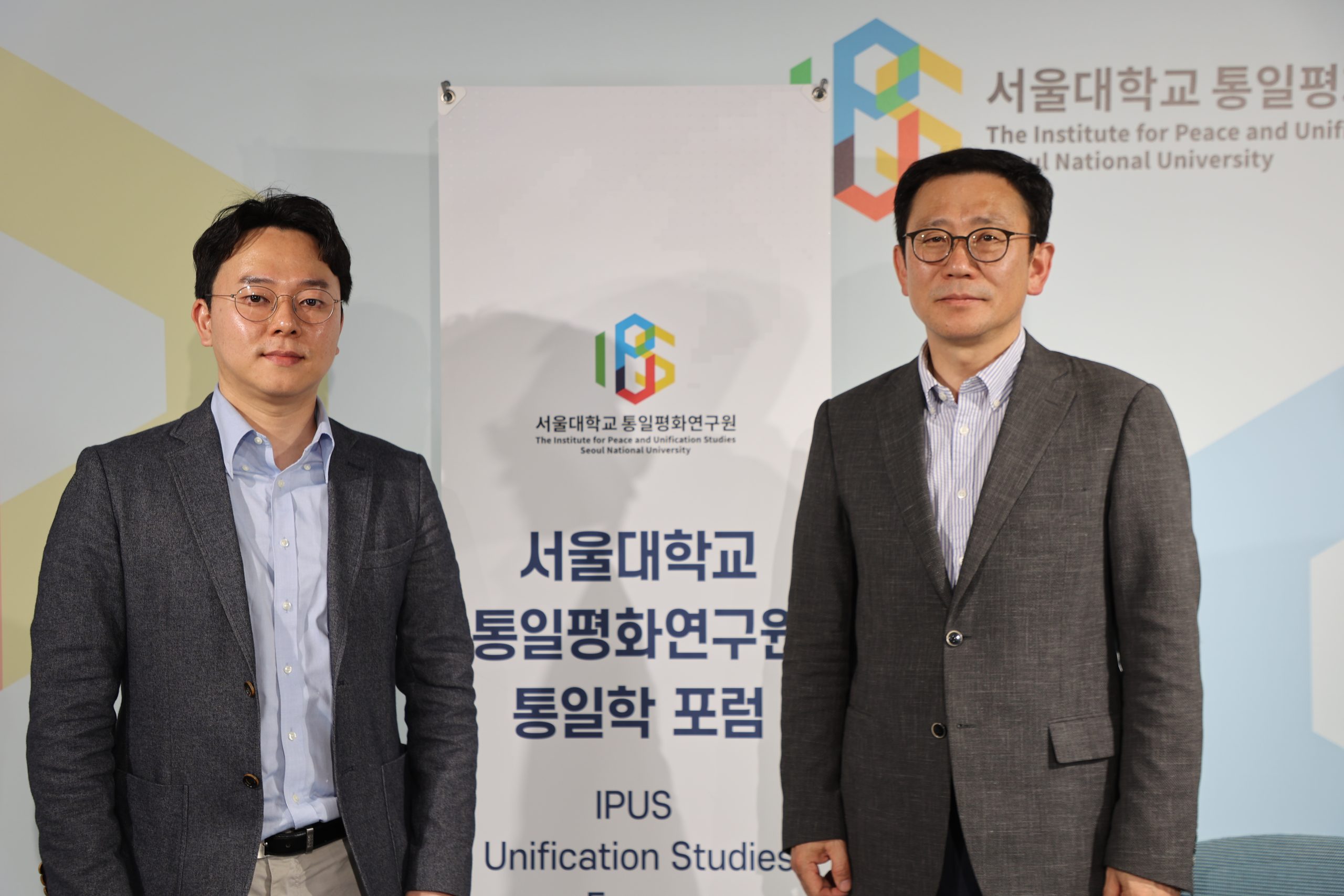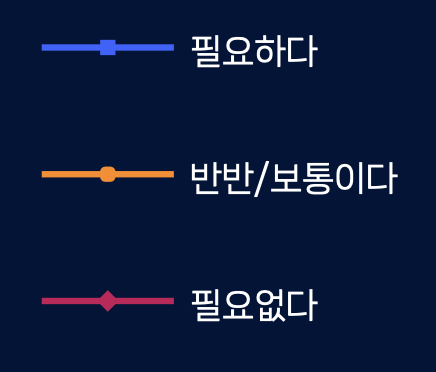[100th Unification Studies Forum] North Korea’s Perception of the International Situation and Changes in its Foreign and Inter-Korean Strategy
- Date: Thursday, May 2, 2024, 15:00 – 17:00 (KST)
- Venue: Online video conference (ZOOM)
- Speaker: Choi Yong-hwan (Senior Research Fellow, INSS),
- Moderator: Kim, Taek-bin (Senior Researcher, IPUS at SNU)
- Topic: North Korea’s Perception of the International Situation and Changes in its Foreign and Inter-Korean Strategy
The Institute for Peace and Unification Studies at Seoul National University(IPUS at SNU) hosted the 100th Unification Studies Forum on Thursday, May 2, 2024, under the theme of “North Korea’s Perception of the International Situation and Changes in its Foreign and Inter-Korean Strategy”. The Unification Studies Forum is an expansion and reorganization of the Unification Policy Forum, which was held 75 times between 2006 and 2020, and is now in its 100th edition. The forum was moderated by Dr. Kim Taek-bin, a senior researcher at IPUS, who opened the forum with a welcome speech.
During this forum, Senior Research Fellow Choi Yong-hwan explained North Korea’s perception of the international situation and changes in its foreign and Inter-Korean strategy. In the early years of Kim Jong-un’s regime, North Korea adopted a strategy of simultaneously pursuing economic development and nuclear capabilities. This strategy reflected the accelerated nuclear development following the collapse of the Six-Party Talks in 2008 and the death of Kim Jong-il. Concurrently, Kim Jong-un attempted to improve relations with the United States alongside the parallel military buildup. To achieve this, efforts were made to improve relations with South Korea and China, culminating in the PyeongChang Winter Olympics and inter-Korean summits. However, following the breakdown of North Korea–United States negotiations after the Hanoi Summit in 2019, North Korea adopted a new external strategy.
Acknowledging the inevitability of tensions and conflicts with the United States, North Korea continued its nuclear development, reverting to a self-reliant economic-nuclear parallel policy to cope with U.S. sanctions. This shift emphasized a de facto economic-nuclear parallel policy, reaffirming the socialist economic development pursued at the beginning of Kim Jong-un’s regime. North Korea criticized South Korea’s dependence on the United States, reducing the importance of inter-Korean relations. Meanwhile, North Korea, while invoking the discourse of the “new Cold War,” sought to utilize the deterioration of U.S.-China relations and the strategic competition between the United States and China to carve out strategic space unaffected by U.S. influence, striving to overcome international pressure. Additionally, North Korea began actively expressing confidence as a nuclear-armed state, stating in a letter to Trump that South Korea’s military was not an adversary due to North Korea’s nuclear capabilities and emphasizing in the Nuclear Weapons Act that nuclear weapons were a means of safeguarding national sovereignty, territory, and fundamental interests.
The reduction in the significance of North-South relations is evident in recent references to “two-state relations” by North Korea. Recent plenary sessions and speeches by North Korea indicate new changes in inter-Korean relations. North Korea emphasized its readiness for war at any time, expressing its determination to occupy and annex South Korea in the event of war. Moreover, North Korea plans to reorganize and revamp all organizations related to inter-Korean relations. This demonstrates a willingness to change previous approaches and establish a system suitable for a new era. However, whether these changes in North Korea are mere posturing for negotiations or a shift in strategy to a more aggressive stance, close observation of North Korea’s changes and appropriate responses are necessary.
As a midterm task in response to North Korea’s changes in oreign and Inter-Korean strategy, several strategies can be considered. Strengthening cooperation with Russia: Enhanced military and economic cooperation with Russia can be pursued to improve relations with North Korea. Russia is one of the major countries possessing high compatibility in weapons systems with North Korea and has advanced nuclear, missile, and space technology, making it a key player. Expansion of cooperation among China, Russia, and North Korea: Instead of viewing cooperation between North Korea, China, and Russia solely through the lens of a new Cold War dynamic, efforts should be made to utilize China and Russia to facilitate dialogue with North Korea. Responding to North Korea’s substantive threats: Building expanded deterrence capabilities to address North Korea’s nuclear weapons and missile programs is essential. Responding to changes in the international order: The current order is characterized by fluid boundaries and conflicts depending on the issue. Therefore, flexible and proactive diplomacy should be pursued to secure national interests and seek responses to North Korea. Balance between external and North Korean strategies: Establishing strategies that turn the Korean Peninsula issue into a common agenda for East Asia, inducing North Korea’s participation and contributing to regional stability, requires domestic consensus for sustainable and stable policies.

